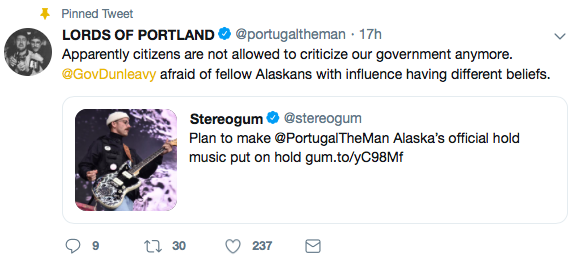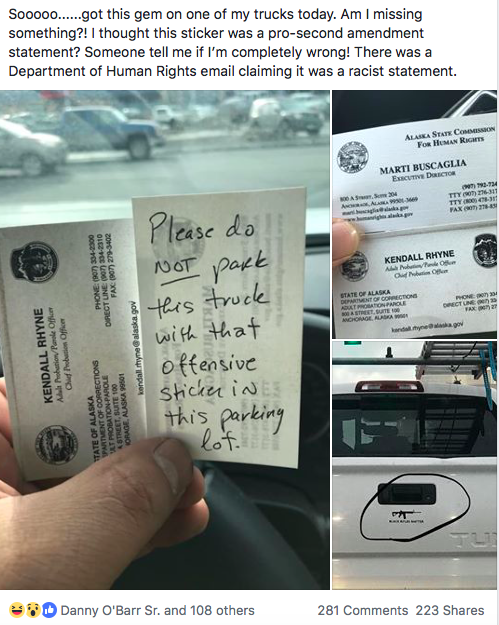‘PORTUGAL. THE KNEEJERK’ THROWS A TWITTER TANTRUM
The Dunleavy Administration has put on hold a music project for the State’s phone “hold” selection that was advanced by the Walker Administration as a way to highlight Alaska musicians.
The project was written about last year by Must Read Alaska, which raised a question about one of the songs, which had discordant sounds and lyrics that referred to self-harm, eating disorders and other unhappinesses:
[Listen to the selection “Mother Carries” here by the Fairbanks band “Harm.”]
The original Must Read Alaska story is here:
Now, one of the bands featured in the project has taken to Twitter to object to the Dunleavy Administration putting the “Hold” project on hold. Portugal.
The song selection needs more thought, according to State sources contacted this morning by Must Read Alaska.
Portugal. The Man, the band that freely endorsed Mark Begich for governor last year on Twitter, said this delay is political. And then the band used the delay to advance the band’s anti-Dunleavy agenda:

Later, in respond to the social media discussion that ensued underneath that comment, the band tweeted:

Politics is a specialty of the band, which says it is based in Willow, but whose members now live in Portland. The musicians evidently believe they are entitled to being the State of Alaska official hold music in perpetuity.
[Read the Associated Press story on the project delay]. (The Associated Press goes to great pains to not name the news site Must Read Alaska):
Dunleavy officials said today that whatever the ultimate selection is, none of the music should be considered permanent in the rotation.
Do you have any suggestions for hold music for the State’s phone system? Any cookie recipes to share? Add them below.










